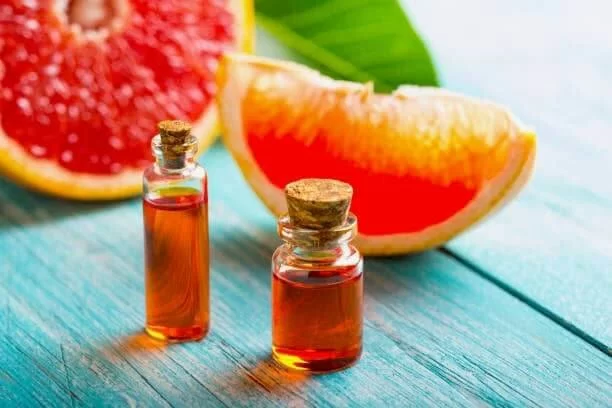1. Introduction: Do Grapefruits Taste Like Perfume?
Grapefruits are known for their unique, tangy flavor, but for some people, the taste can evoke a surprising comparison — does grapefruit taste like perfume? The question may seem odd at first, but there are several reasons why some might think the taste of grapefruit resembles floral or aromatic notes. In this article, we’ll delve into the science of grapefruit’s flavor profile, its aromatic compounds, and why some people might associate it with the scent of perfume.
2. The Flavor Profile of Grapefruit
2.1 What Makes Grapefruit So Unique?
Grapefruit is a hybrid fruit, originally bred from the pomelo and orange. Its flavor profile is a combination of sweet, sour, and bitter notes, which can make it stand out among other citrus fruits. The tanginess of grapefruit comes from its natural acidity, while its bitterness is due to compounds like naringin found in the rind and flesh. But beyond these basic flavors, grapefruits also have aromatic compounds that give them a more complex sensory experience.
2.2 The Connection Between Grapefruit and Floral Scents
One of the key reasons some people believe grapefruits taste like perfume is because of its volatile aromatic compounds. Grapefruits contain terpenes, which are organic compounds that contribute to the aroma and flavor of many fruits. Limonene, for example, is a terpene found in citrus fruits that gives them their characteristic citrusy scent. In grapefruits, limonene is often accompanied by floral notes, which can make the taste experience feel like a mix of citrus and flowers — similar to the scent of certain perfumes.
3. Grapefruit's Aromatic Compounds: A Deeper Look
3.1 Terpenes and Their Role in Taste
Terpenes play a significant role in how we perceive the taste and smell of grapefruit. These compounds are responsible for the fruity, floral, and even sometimes woody aromas. Besides limonene, grapefruits also contain compounds like linalool and myrcene, which are often associated with floral and herbaceous scents. The combination of these compounds creates a flavor experience that some individuals may associate with the light, floral tones of perfume.
3.2 The Impact of Grapefruit’s Skin and Pith
The skin and pith of grapefruit are known for their bitter flavors, which can overpower the sweetness of the fruit's flesh. When you peel a grapefruit, the oils released from the zest also contain aromatic compounds that are often used in perfumes and scented oils. This is why the initial scent of freshly peeled grapefruit might feel like an aromatic burst similar to floral perfumes. While the bitterness remains on the tongue, the initial impression can certainly remind some of a perfume’s floral fragrance.
4. Are People More Likely to Taste Grapefruit as Perfume?
4.1 Individual Differences in Taste Perception
The way we experience taste and smell is subjective and can vary greatly from person to person. Some individuals might be more sensitive to certain aromatic compounds in grapefruit, leading them to associate it with a floral or perfumed aroma. For others, the tartness or bitterness might dominate their experience of the fruit, making the perfume-like quality less noticeable. These differences in perception can explain why some people find the taste of grapefruit reminiscent of perfume, while others do not.
4.2 How Personal Preferences Shape the Experience
Personal preferences and prior experiences can also influence how we perceive flavors. If you have a strong association with floral perfumes, you might be more likely to detect those same floral notes in grapefruit. Additionally, if you've used grapefruit-scented products in the past, such as lotions or candles, you may associate the flavor with those scents, further solidifying the connection between the taste and the perfume-like qualities.
5. Grapefruit in Culinary Applications
5.1 The Versatility of Grapefruit in Cooking
Grapefruit is not only enjoyed fresh but is also used in a variety of culinary dishes and drinks. From salads to cocktails, its tart and refreshing flavor adds a unique twist to many recipes. Some chefs even pair grapefruit with floral herbs like lavender or rosemary to enhance the perfume-like qualities of the fruit. When combined with honey or other sweeteners, grapefruit can take on a less intense, more balanced flavor, which might reduce the “perfume” aspect for some people.
5.2 Grapefruit and Perfume in the Same Experience
Interestingly, the connection between grapefruit and perfume isn’t just limited to taste — it extends to scent as well. Many fragrances in the perfume industry incorporate grapefruit as a top note, using its sharp, citrusy aroma to create an invigorating opening for the scent. This is why, for some, the taste of grapefruit and the scent of perfume seem to overlap, both offering bright, zesty, and sometimes floral notes.
6. Conclusion: Why Grapefruit Can Feel Like Perfume
In conclusion, grapefruits may taste like perfume to some individuals due to the complex combination of aromatic compounds found in the fruit. The presence of terpenes like limonene, linalool, and myrcene contribute to a flavor profile that mixes citrusy, floral, and even woody notes, which might remind people of perfume. While this flavor comparison is not universal, those with a heightened sensitivity to floral scents might notice the perfume-like qualities more than others. Whether enjoyed fresh, in a dish, or as part of a beverage, grapefruit continues to delight with its distinct and multifaceted flavor profile, which makes it a unique fruit in both the culinary world and beyond.


0 comments